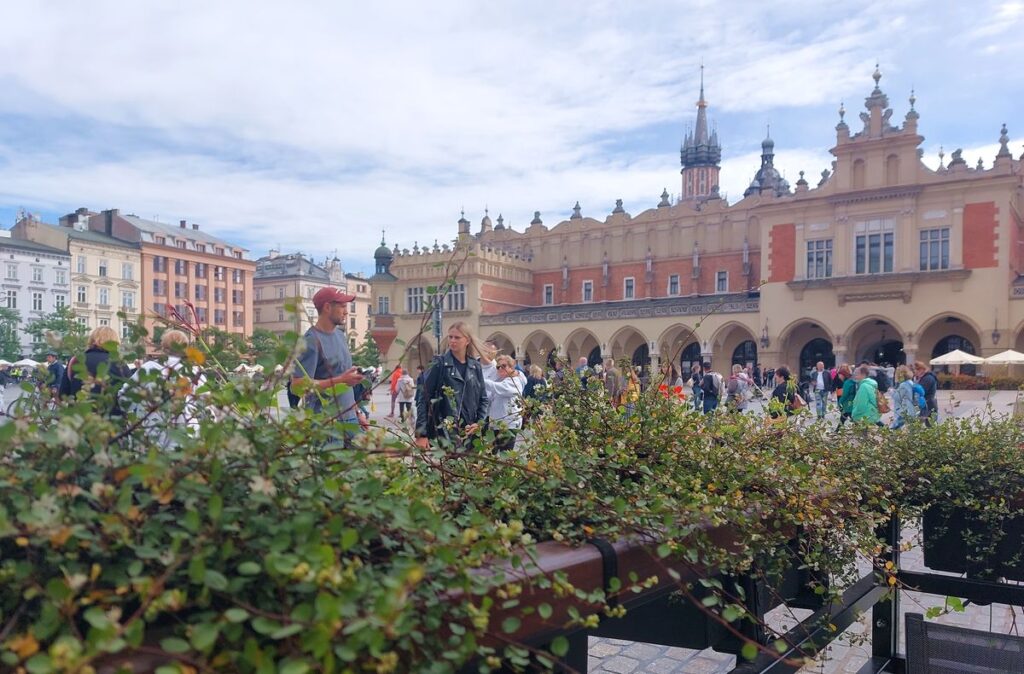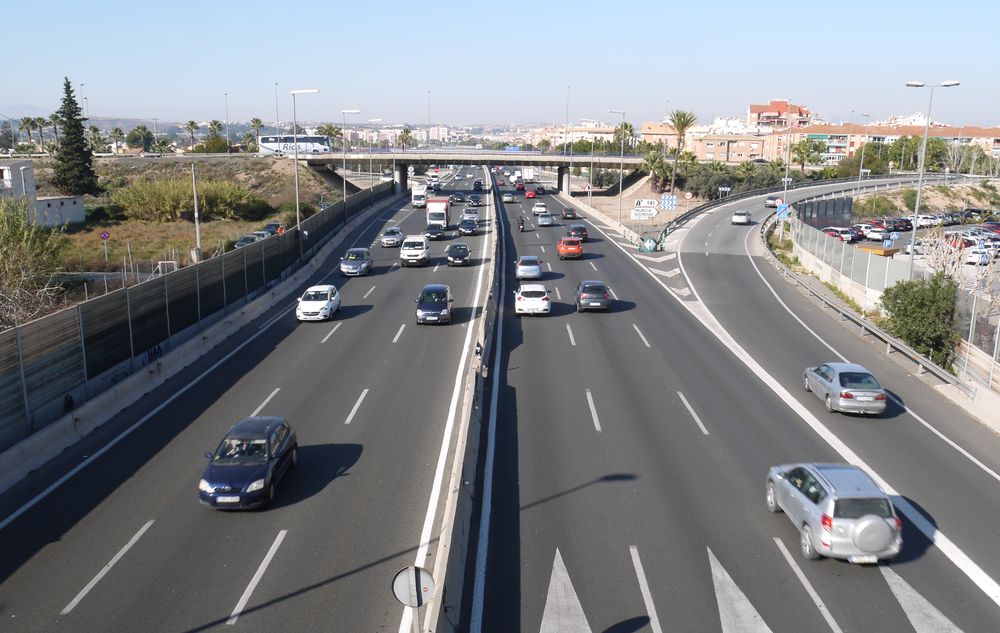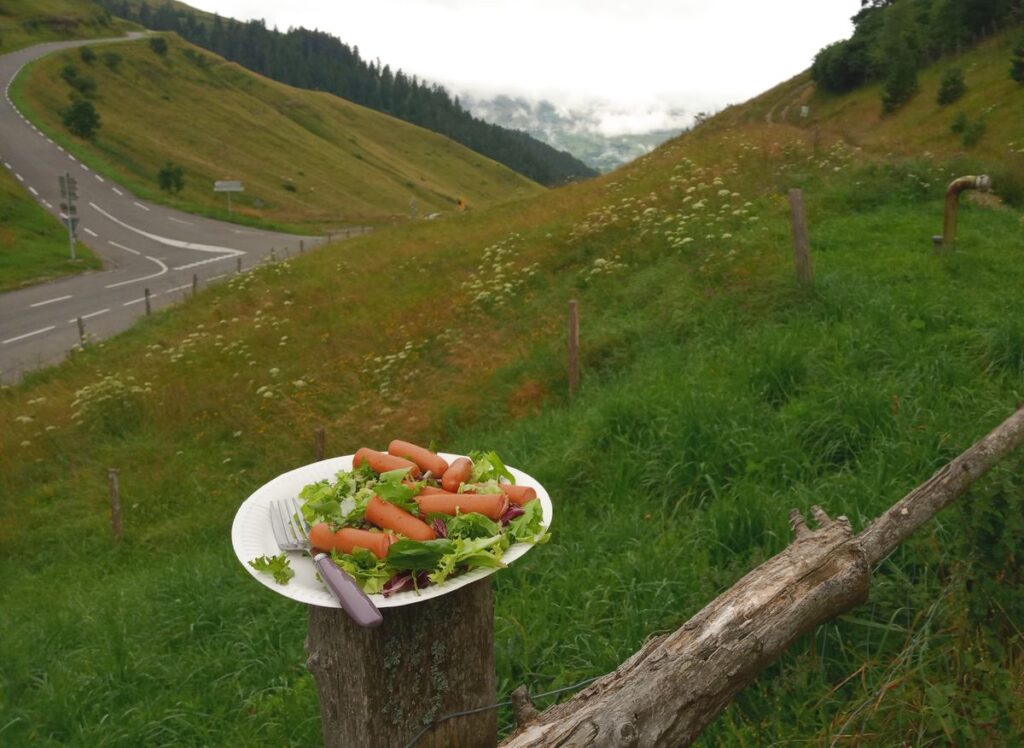
Nothing in the world is perfect. Nitpicker can always find something he believes could be made a tiny fraction better. Not to mention travel – when real life experiences in a destination don’t match the expectations and everything that can go wrong, goes wrong. Well, that’s the beauty of travel. Recover, learn, adapt, and continue with one more experience richer and wiser. Here are a few lessons learned from our trips in Europe during 2024.
Traveling in East Europe is rewarding
We haven’t been traveling extensively in East Europe during the last 10 years. Finally, in the summer of 2024 we made a long road trip along a route known as Via Baltica, all the way north to Estonia and Tallinn. Some people claim the Via Baltica starts from Czech Republic whereas others are sure it starts from Poland. Either way, the point is that that the countries along the route are wonderful destinations to explore and enjoy new travel experiences.
English is definitely emerging as the international language across the countries along Via Baltica, making communication and learning about local cultures easier. Every country has its own language, culture, traditions, and long history (although borders may have moved back and forth during years). The difference to, for instance, countries in south Europe where mass tourism has brought bread and wine to the dinner table for a long time is evident. People in East Europe tend to be more friendly and unassuming. Travel infrastructure is relatively new, services are readily available, and the key historic sights and monuments have been restored to their original beauty.
Finding exciting off-the-beaten-path destinations is not easy, but totally worth it
How do you actually find destinations that only few visitors know about? My experience is that A) by (critically ) reading and viewing travel related blogs, publications and documentaries, and B) keeping eyes open when traveling and listening when talking with local people are good sources for identifying new destinations to visit.
The third source of information I have found useful is Unesco. If a destination has been recognized as a World Heritage site, there is something special to see and experience in that location. Apparently, getting the Unesco recognition doesn’t mean tourists will flood the streets and cafes of the destination. No, Paris and Venice still attract the masses. For instance, Vilnius in Lithuania and four fabulous cities in central Spain are examples of discoveries that were worth the time and effort it took to identify them and travel there.
Try to avoid highways that are easily congested
It is easy to say that you should avoid congested roads so that you don’t waste your time queuing in traffic jams, but not even the smartest GPS system is aware of everything that is happening on the roads. Perhaps the worst situation is a congested highway because exits are few and it may take hours before travel speed returns to anything above 20 km/h. Avoiding highways altogether is certainly a solution. Driving along old main roads you will see the actual country, its towns and villages, but naturally, it may take more time than a highway (unless the highway traffic is crawling). The fact is that highways near big cities, like Paris, Lyon, Hamburg, Milan, or Barcelona tend to be overloaded with cars and trucks, or more or less near choking point.
Nitpicker loves Barcelona, but can’t stand crawling along the bypass highway outside the city. Last time we were in Spain, we decided to test if it is faster to drive an alternative route instead of directly driving the highway that passes Barcelona. The result was that the detour can be faster if the highway traffic is crawling, but highway is faster if it is not packed (although I have never seen traffic flowing freely there). Naturally, an alternative route usually is longer and adds cost, so it is a decision to make.

Don’t download service station, restaurant, or supermarket apps on your phone
Many travelers have a trip booking, planning or itinerary app on their phones. Hopefully they did their research to avoid apps that hoover personal data and introduce extra security risks. The personal data is valuable merchandise in internationals markets where data buyers can be advertisers, criminals, and government agencies, among others. Free apps are one of the easiest way to track people and collect data from phones. If, for instance, a restaurant or hotel asks you to download their app, ask why. What data the app may collect? Nitpicker discovered a nasty example in Italy where a service station proposed customers to download a personal data hoarding app for monitoring parked cars at the parking lot. Really.
Take time to research potential quirks of your chosen travel method in Europe before leaving home
One of the most exhilarating things with traveling in Europe is that you don’t have to travel far to find another country, culture and landscape. If you intend to tour Europe by car or by train, you have to study how the system works, and what you need to have for a smooth travel experience. European countries are developing a common train ticketing system that allows booking cross border trips even for different railway companies, but at the moment, you have to rely on online services, like Seat 61 or Rail.cc that help you find tickets.
Road tolls can be another surprise for travelers because many countries have their own systems for collecting highway tolls. In some countries, you pay at a toll booth as you go, but in others, you must purchase a vignette before you enter the country. Read more about road toll systems here.
Have a plan A, B and C ready, for instance, if your phone or mobile router stops communicating
Do you have a plan B if something goes wrong? For critical things it makes sense to prepare an alternative solution. When traveling, nitpicker being a nitpicker is not satisfied with a plan B alone, but has learned to have a plan C as well. For example, let’s consider finding a place to park a car in a European city. The odds tend to be against you the closer to a city center you get. In this case, the plan B is: find a car park where you have to pay. They usually have space, at least, for compact cars.
What if your phone or internet connection stops connecting to a mobile network when you cross a border to another country? This happened to us in the summer of 2024. We were prepared: a prepaid SIM card purchased a couple of weeks ago was supposed to keep us connected in the EU region. Nonetheless, it simply didn’t connect to any network in Czech Republic, or anywhere after that. Fine, our backup was a SIM card purchased in Portugal before the trip that had kept us connected a few months earlier. No chance. Didn’t connect anymore. The only option left – the plan C – was to rely on the subscription SIM card on the phone, and consume megabytes in its data connection. Fortunately, the subscription SIM didn’t have any problems with connecting to networks in any country we still had on the tour schedule.
Best and worst moments
What was the best and worst travel moment in Europe in 2024, you ask? Perhaps the worst moment was losing the connection of both prepaid SIM cards reserved for internet connectivity.
The best moment was at a grocery store in Poland. I was looking for hot dog sausages for preparing a quick lunch, but didn’t have any idea what was said in all the sausage packages available. An elderly lady was filling shelves with fresh products. I didn’t even try English with her, but opted for international sign language. I pointed to sausages and made pig noises. She appeared surprised but understood what I wanted and picked up a package for me. I smiled to say thanks, and turned towards the cashier. Then, she started laughing. Loudly.

